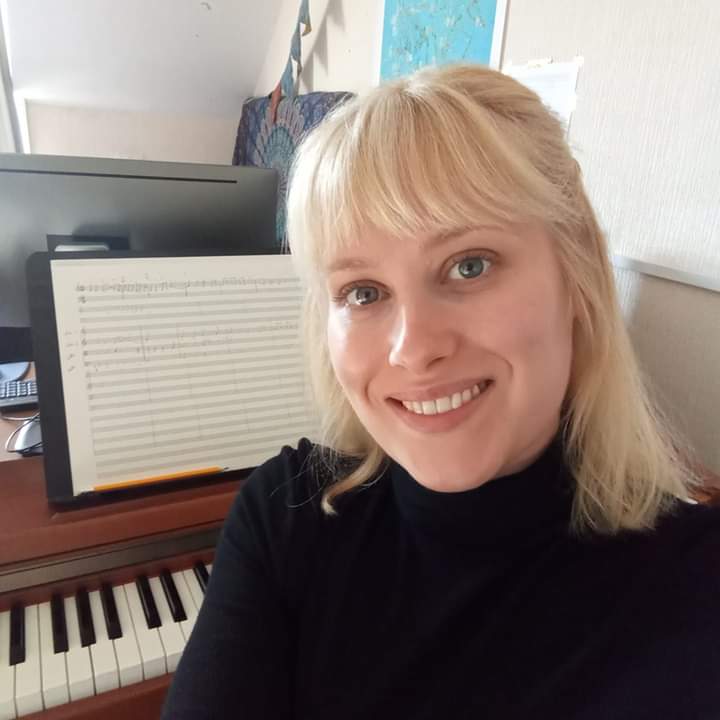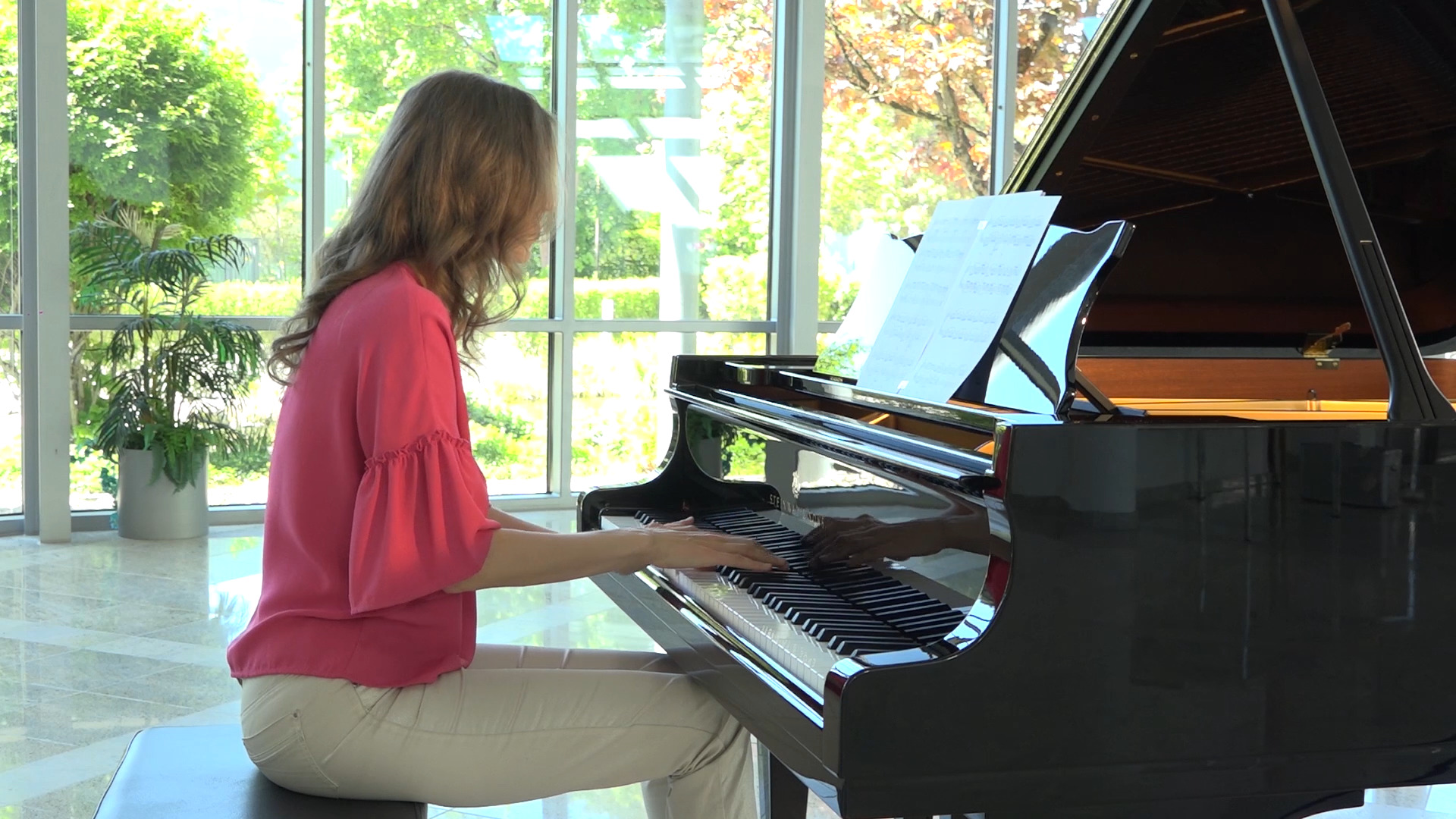About
Alex began playing the piano at the age of five but started formal lessons at fifteen. She credits her interest in composition to being largely self-taught in the early years; learning to play by ear and ‘’finding the notes’’ naturally led to experimentation. Later, Alex learned folk guitar and oboe and studied music at the University of Bristol with Professors Pauline Fairclough and John Pickard, graduating in 2009 with a Masters Degree in Musicology, with Distinction. Since then, Alex has built a recording studio at home and, alongside her busy day job, continues to compose for her local theatre, the Wallingford Corn Exchange. Projects have included music for Chekov’s The Cherry Orchard (2015), Shakespeare’s The Tempest (2016), and an orchestral score for Goldsmith’s 1770’s comedy She Stoops to Conquer (2019). Future commissions include the music for a production of Shakespeare’s Twelfth Night (expected 2021). Alex is hoping to pursue a full-time career in composition and is launching a new website in Summer 2020.

